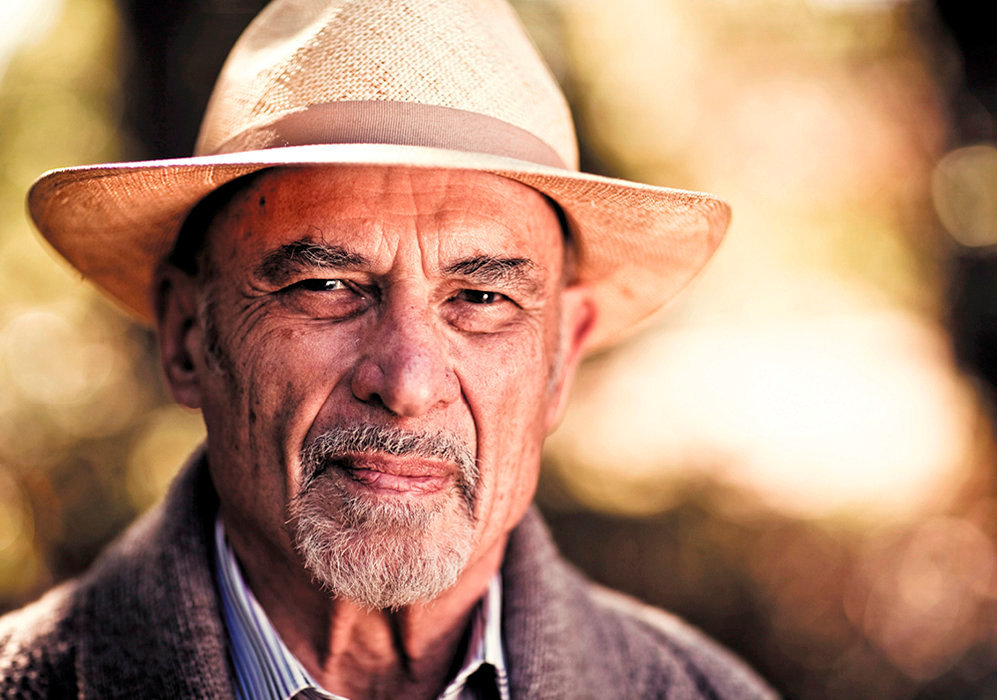
-Irvin David Yalom was born on June 13th 1931 in Washington D.C. His parents emigrated from Russia before he was born and were tenants of a grocery store. Young Irvin spent most of his childhood reading books such as Dostoïevski’s or Sartre’s novels, and studied medicine after graduating from high school. He was interested in the psychiatric field right away and began his academic career at Stanford University soon after he served in the army. He is mostly known for his work on what would later be called “existential therapy”, a psychological field of study that he developed and made popular. This psychotherapeutical method stands apart from other such as BCT or psychoanalysis in the sense that it mainly centers on the “big questions” of humans existence, that Yalom calls the “four given of human condition”. Those notions are isolation, meaninglessness, mortality and freedom, and are seen as unavoidable concerns that come to everyone’s life at some point. This means that the question of what death is for example, and how it affects us runs deep in the subconscious of every human being, and has to be dealt with. The existential therapy is unique in the way that it focuses on those“ultimate concerns” and tries to understand how each one affects us, shapes us and can also burden us.
-Thereby, Yalom sees psychopathology and psychological turmoil as inabilities to conciliate ourselves with those concerns. Exploring our relationship with one or all of those notions and finding a way to live knowingly and peacefully with them would then be a sort of solution for our internal suffering : existential psychotherapy can be considered as an opening of the conscious to those challenges inherent to life, with the hope that once we stop avoiding the thoughts associated to them, we can develop a new compromise between ourselves and those existential anguish and live more fully.
-Even tough those “four given” exist from the day we are born, it could be argued that most of us mainly encounter and start dealing directly with them during adulthood. It is Yalom’s point of view that some of us will spend their lives mainly unaware and untroubled by those concerns, and that they often become more acute when we face a“border”, meaning a situation when we are directly faced with death, with a life-changing decision or with the collapsing of a“meaning-providing scheme”. Here are the four ultimate concerns briefly described :
-Death: By nature, death is the most important of the four ultimate concerns. Human beings are unique creature in the sense that we are aware of our mortal condition, which creates a great deal of questions and pain. There is a core conflict in the human life between being aware that death is unavoidable and universal and the wish to continue to live and to ignore that fact.
-Isolation: In existential therapy, the experience of solitude is understood as more than loneliness, here isolation is the fact that our personal history is fundamentally only personal, that language and communication are imperfect by nature, that we can never truly and totally be in relation with other. No matter of close when can be with somebody else, the existential isolation remains, as described by Yalom as “an unbridgeable gap” between us and the rest of the world.
-Meaninglessness: Human being yearn for meaning, are meaning-seeking creatures : this understanding is created by each and everyone of us, forms, shapes and encapsulates our identity. The hiatus here is that this personal construction clashes with the fact the universe has non inherent meaning other than the one we create and bring to it.
-Freedom: The concept of freedom is deeply linked to responsibility, as being free also implies making choices and actions that we can be taken accountable for. In the existential sense, freedom can be a crippling realization because it means evolving in the world with the sort of paradox that we can virtually do anything that we want but that by doing so you must endure and assume any consequence that might stem from our actions.
-Existential theory cannot be reduced to only those 4 concepts, but there are fundamentals to apprehend how Yalom conceives human life and therapy.What I find interesting in this approach is its proximity to philosophy, the way it uses universal concepts to understand individual experience. It brings an interesting addition to other psychological theories : it creates a deeper understanding of the patient by taking some distance with the medical symptomatology for example, and reminds the therapist that no matter what the patient displays as symptoms, those four concerns are always underlying and should be investigated to comprehend the subjective construction of the self.
Words I have learned :
-Turmoil : trouble, bouleversement
-Collapse : effondrement
-To encapsulate : résumer, contenir
-”A unbridgeable gap” : un fossé insurmontable
-A core conflit : un conflit essentiel, de fond
Clara Champigny
